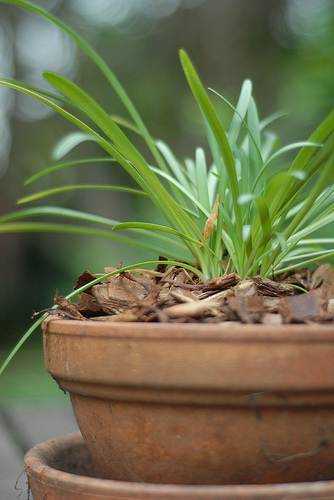Gardening information is everywhere; from books to online to your next-door neighbor. But many questions are region-specific and you’re unable to find (or are unsatisfied) with the answers you’re gathering on your own. There are places that you can go to in your hometown to get some one-on-one advice.
My very favorite resource for consulting about plant varieties, growing zone questions, and pest or disease trouble shooting is the Master Gardeners. Master Gardeners are affiliated with the land-grant university and the Cooperative Extension Offices. They’re graduates of a volunteer program (Extension Master Gardener Program) that are trained to advise and educate the public on gardening and home agriculture. No, they don’t have a horticultural degree, however, they receive a thorough gardening education and because they have access to university agricultural materials, they’re extremely efficient researchers. You can reach out to them directly through the Cooperative Extension office in your county.
My next favorite resources are local nurseries and garden centers. You might be thinking “What’s the difference?” First of all, sometimes there is none; the terms are often used interchangeably. But technically there is a difference. Nurseries actually grow plants which may or may not be sold directly to the public, as well as landscapers, and garden centers. Some nurseries sell to all three and they may have other garden products for sale, as well.
Garden centers order the plants that they sell to the public from the nurseries. They not only carry plants, but offer many other garden related products such as containers, soil, fertilizers, seeds, books, and garden ornaments. This isn’t to say that some garden centers don’t grow some of their own plants they certainly can just like nurseries may sell fertilizer and other garden paraphernalia. It can be a fine line, but a nursery’s primary focus is to grow plants.
As far as excellent advice, in my experience I’ve found that I get more in-depth information the from nurseries than from garden centers. Before I end up with angry comments on this post, let me explain why I think it’s worked this way for me. Nursery employees are actually growing the plants from square one and they gain a ton of experience. The company may also hire individuals that have plant-growing experience or background because the nursery’s very livelihood depends on these plants staying a live for much longer than at a traditional garden center which gets them as nice-sized plants that are moved out by shoppers everyday.
Information gathered from a garden center can be hit or miss. Although I’ve received excellent information from employees that are dedicated to plants at garden centers — the big box ones included — I think it’s harder to to find an extremely knowledgeable person simply because they also have employees that work in several departments throughout the store. So, many have only a basic plant knowledge and not much about specific varieties, pests, etc. You can always ask for the department head and they can often help if an individual employee is unable to do so.
Garden book by Aussiegall
Nursery center by Wallygrom
Beetle by USDAgov
Potted plant by Andrew Beeston









I totally agree. Especially when it comes to regional nuances in your specific area. There’s a sweet lady down in Durant who grows many of her plants, especially vegetables, herself each year and it’s fabulous to purchase plants from her. Not only are her prices amazing, but her plants do so well each year.